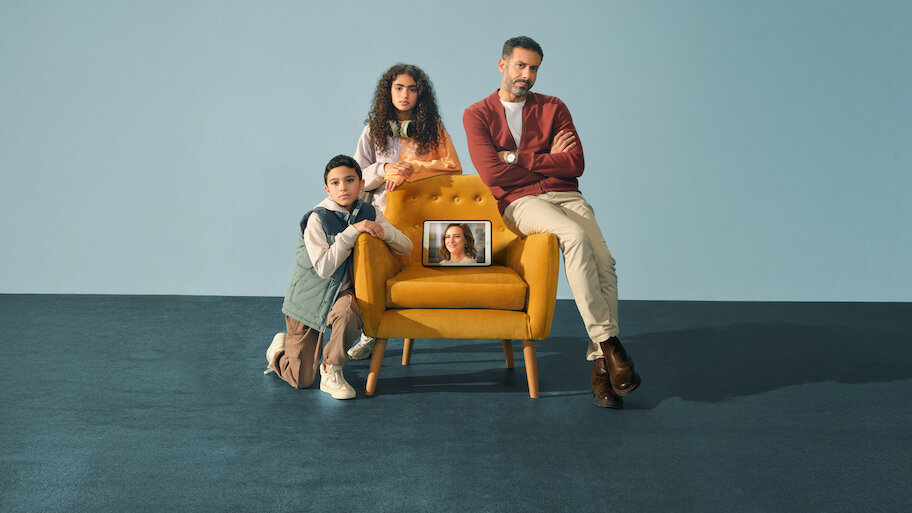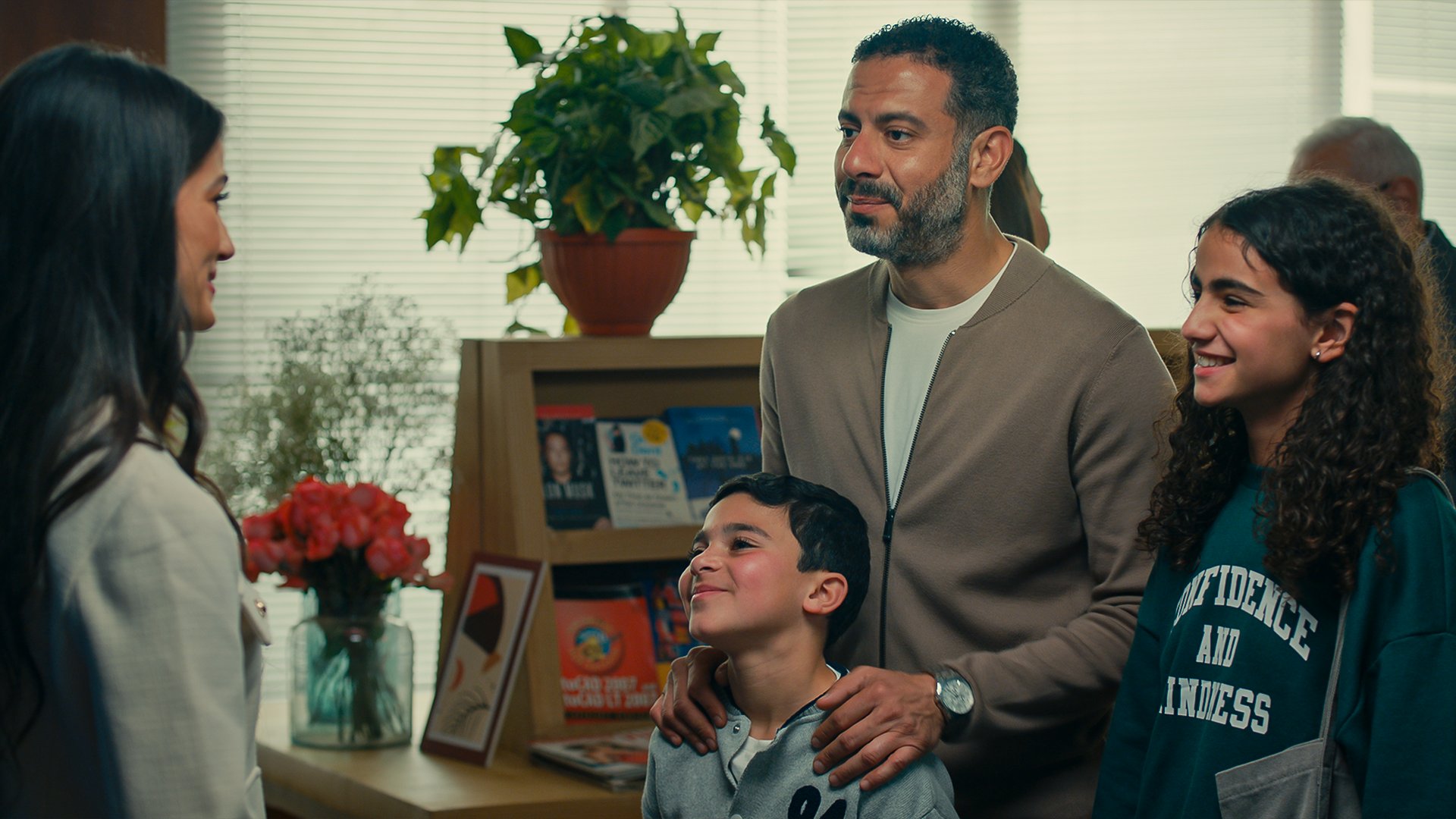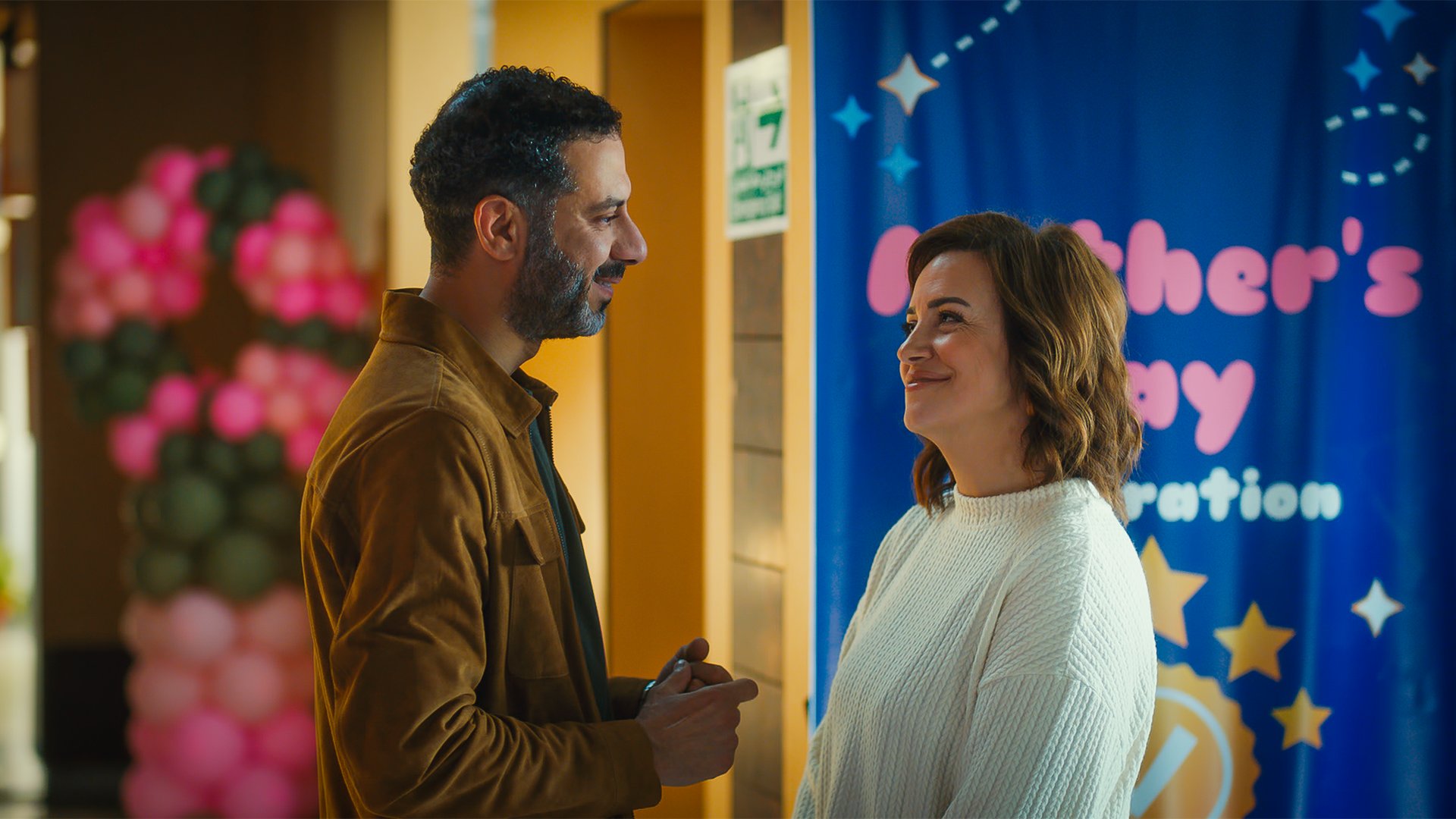Catalog is an invitation to reconsider the division of emotional labour within families, especially in societies where fathers are excused from caregiving simply because they pay the bills.
By Joseph Jonathan
When we speak about parenting on screen, especially in African or Middle Eastern contexts, it is almost always through the mother’s gaze. She is the emotional core, the invisible labourer, the keeper of routines and rituals that hold a family together.
In Catalog, a quietly stirring eight-episode Egyptian series released on Netflix on July 17, writer Ayman Wattar, and director Waleed El-Halfawy, challenge that longstanding norm, not through sweeping melodrama or activist declarations, but through one man’s fumbling attempt to step into shoes he never thought he’d have to wear.
Mohamed Farrag plays Youssef, a recently widowed father whose wife, Amina (Riham Abdel Ghafour), dies suddenly, leaving him the sole caregiver of their two children, Mansour (Ali El Beialy) and Karima (Retal Abdelaziz). Youssef is not a deadbeat dad in the conventional sense. He loves his family. He provides.
But like many men in similar roles, he has long been a stranger in his own home: emotionally distant, practically absent, and out of sync with the rhythms of everyday parenting. When Amina dies, Youssef is forced to reckon not only with her absence but with the vast, emotional terrain he never learned to navigate.

It is here that Catalog finds its narrative engine. In a moving twist, Youssef discovers a series of parenting videos Amina had recorded before her death, a kind of posthumous guidebook, filled with instructions and encouragement. These video clips become his lifeline: a blueprint through grief, a mirror to his inadequacies, and a gentle invitation to become the parent he was never socialised to be.
At its heart, Catalog is a slow-burn cultural critique disguised as a family dramedy. It’s an invitation to reconsider the division of emotional labour within families, particularly in societies where the father is excused from caregiving simply because he pays the bills. This critique is subtle, never didactic.
In one poignant scene, Youssef takes his son to football practice for the first time and is visibly uncomfortable being surrounded by mothers. When he finally spots another man, he assumes the man is a fellow widower, to which the bewildered man retorts, “I come to practice because I’m his father”, cutting through Youssef’s internalised belief that men only show up when forced to.
These moments, quiet, human, but politically loaded, make Catalog more than just a story of grief. It’s a cultural intervention and statement. One that challenges gender roles, critiques male emotional illiteracy, and reimagines fatherhood as a practice of presence, not just provision.
Farrag is masterful in his portrayal of Youssef. Not in the grand emotional crescendos, but in the quiet confusions and failed attempts that mark his growth. His grief is not always pretty; it’s clumsy, frustrated, and deeply human. Abdel Ghafour as Amina, though physically absent for much of the show, haunts every frame. Her presence through the parenting videos gives the show its emotional spine.
The child actors (Ali El Beialy and Retal Abdelaziz) are standout surprises. Their performances are sensitive, intelligent, and heartbreakingly believable. They embody the children of a fractured home: confused, angry, sometimes manipulative, but ultimately yearning for connection.

Khaled Kamal as Hanafi, Youssef’s brother, also shines in a supporting role. A hardened man with a soft streak, Hanafi becomes both comedic relief and moral compass, often delivering wisdom in a way that feels earned, not imposed.
Walid El-Halfawy’s direction is understated but effective. The camera rarely leaves the home, reinforcing the domestic claustrophobia Youssef feels. The sound design adapts with the emotional weather of the scenes, swelling during chaotic moments, and softening during moments of introspection.
The score, especially the opening music, is beautiful and distinctly regional. There’s something about the instrumentation that signals, immediately, that this is Arab television at its finest — unhurried, emotive, culturally grounded.
The writing is another triumph. The dialogue feels real, often to the point where viewers might find themselves finishing characters’ sentences. It doesn’t pander or overexplain, which is especially important in a show deeply rooted in local nuance. Amina’s monologues are full of small truths, which are not just poetic for the sake of being poetic, but full of the kind of reflections that reveal themselves only through lived experience.
Though rooted in Egyptian life and culture, Catalog speaks across cultures. Its themes of emotional reconnection, posthumous love, and the invisible weight of caregiving, are as relevant in Lagos as they are in Cairo, as resonant in Beirut as they would be in Nairobi. In many parts of Africa and the Middle East, the idea of “fatherhood” still carries the distant, stoic weight of the patriarch. This show gently, but firmly, asks us to let that go.
Even more interestingly, Catalog reframes motherhood not as saintly martyrdom, but as structured intention. Amina’s videos are both acts of care and acts of control, one last way to shape the future of her family in her absence. They are feminist in their very existence: proof that domestic labour is not instinctual but learned, practiced, taught, and therefore, shared.

As a first-time viewer of Egyptian television, I was struck by the narrative precision of Catalog. Unlike many Nollywood series that begin with promise only to meander through unnecessary subplots, Catalog stays true to its emotional arc. Every subplot feeds the main story. Every emotional beat is earned. The pacing is patient but never plodding. This is a masterclass in restraint, a lesson in how to trust your characters enough to carry the story without needing contrived twists or dramatic noise.
Catalog is not flashy. It doesn’t shout its importance. Instead, it invites you into a home, sits you down, and slowly unravels the knot that binds grief, masculinity, and love. It is one of the most culturally grounded and emotionally intelligent shows from Netflix in recent times.
For anyone who’s ever had to relearn how to love—after death, distance, or emotional detachment—Catalog offers a quiet, powerful reminder: it’s never too late to show up.
Rating: 3.5/5
Joseph Jonathan is a historian who seeks to understand how film shapes our cultural identity as a people. He believes that history is more about the future than the past. When he’s not writing about film, you can catch him listening to music or discussing politics. He tweets @JosieJp3.



